Photographs: Matt King/Getty Images
Television viewers are used to seeing a snappily-dressed Boris Becker offering his thoughts on the day's big matches from the safety of a comfortable sofa at Wimbledon.
-PHOTOS: How Wawrinka ended Djokovic's three-year reign at Melbourne Park
On Tuesday, minus the make-up and the sharp threads, the German former World No1 found himself perched on a court-side seat in Melbourne watching Novak Djokovic put through the wringer by Swiss Stanislas Wawrinka at the Australian Open.
From talking about the game in his familiar tones, Becker found himself a central part of the unfolding drama and, when his charge stumbled, fair game for tennis writers picking over the Serb's shock five-set defeat in the quarter-finals.
Djokovic decided his game needed something extra and turned to Becker
Image: Boris Becker (back) of Germany, coach of Novak Djokovic of SerbiaPhotographs: Petar Kujundzic/Reuters
It was a surprise last month when, on the day Djokovic was named as the ITF's 2013 world champion, or player of the year, Djokovic announced Becker had joined his team despite the six-time Grand Slam champion never having worked as a coach.
Djokovic had just finished the year in spectacular fashion, winning 24 matches in a row since losing to Rafael Nadal in the US Open final in New York in September.
Despite losing his No 1 ranking to the Spaniard in October, his game appeared to be in fine fettle as he retained the ATP World Tour finals title with a comfortable victory over Nadal in the London year-ender.
All the signs pointed to Djokovic being the man to take on Nadal for this year's big prizes, with most predicting he would start his campaign with a fourth straight Australian Open title.
Yet, Djokovic decided his game needed something extra and turned to Becker, whose attacking serve and volley style and raw power once struck fear into opponents.
Extra firepower
Image: Novak Djokovic of Serbia impersonates his coach Boris Becker on courtPhotographs: Michael Dodge/Getty Images
Some saw it as a riposte to Wimbledon champion Andy Murray's successful alliance with Ivan Lendl, once Becker's fierce rival.
Others saw it as a sign that Djokovic wanted to add some extra firepower to a game built on incredible defensive skills and clinical counter-attacking.
The way Djokovic roared into the last eight in Melbourne without dropping a set - his serve appearing to have more bite and his forays to the net a little more regular - it was easy to get swept along with talk of the Becker-effect.
Djokovic said they had an "instant understanding" yet his defeat by an inspired Wawrinka, who snapped a 14-match losing run against the Serb to deprive him of a 15th straight grand slam semi-final, inevitably put the spotlight on Becker's role.
Vantage point
Image: Novak DjokovicPhotographs: Mark Kolbe/Getty Images
Was it the German's influence, for example, that on match point down led to Djokovic abandoning his usual dogged method of dealing with a crisis to serve-and-volley - a tactic that backfired horrendously when a routine forehand volley went wide?
Djokovic's thoughts may have been scrambled by a Wawrinka miss-hit that landed in on the previous point, or maybe the 26-year-old was just fearful of entering into a baseline rally and allowing the Swiss to offload another blistering backhand.
As the match wore on the camera picked out Becker regularly, applauding his man and geeing him up at crucial times.
The German still does not look entirely at home from his new vantage point at courtside, especially with Djokovic's long-time coach Marian Vajda sitting next to him.
By the end Becker looked a little flustered and more drained than during some of his ferocious battles with Lendl and Stefan Edberg, Roger Federer's new coach, back in his heyday.
Becker's appearance on the scene could be detrimental
Image: Coach of Novak Djokovic of Serbia, Boris Becker watches onPhotographs: Cameron Spencer/Getty Images
Followers of the "if it's not broke, don't fix it" theory will point to Djokovic's defeat as a sign that Becker's appearance on the scene could be detrimental.
After all, the German's arrival coincides with Djokovic's first defeat at Melbourne for four years.
Yet, as Djokovic said, it was still early days.
"Well, look, you know, it has been the first official tournament for us," the number two seed told reporters after his 2-6, 6-4, 6-2, 3-6, 9-7 loss to eighth-seeded Wawrinka.
"I'm satisfied with things that we've been talking about, working on. Of course, it's unfortunate that we finished the tournament in the quarter-finals.
Of his fateful decision to rush the net on match point, Djokovic said: "It was actually a good decision. I had a good serve and volley and good volley, but didn't put it away.
"But look, you know, as I said, it's the beginning of the season and we'll see what's coming next."
Double figures
Image: 4Boris Becker (left), coach of Novak Djokovic of Serbia look dejectedPhotographs: Bobby Yip/Reuters
The World No 2 has only won one grand slam title since the Australian Open in 2012, losing twice to both Murray and Nadal in finals, most notably last year's US Open on the Spaniard's least favourite surface.
Clearly Djokovic believes Becker is the man who can help him squeeze more out of his game so the Serb can take his collection of major titles towards double figures.
With Lendl having already turned Murray into a two-time grand slam champion, and Edberg already apparently having a positive impact on Federer, Becker suddenly finds himself back in a fight for supremacy with two of his old sparring partners.
Sadly for him he will not be able to intervene with a thumping ace or a full-length diving backhand volley.
Becker was known as Boom Boom Boris when he won his first Wimbledon title as the youngest winner of the men's event at 17.
Should his coaching credentials come up short and Djokovic does not bounce back from Tuesday's upset, it might be Bye Bye Boris sooner than expected.

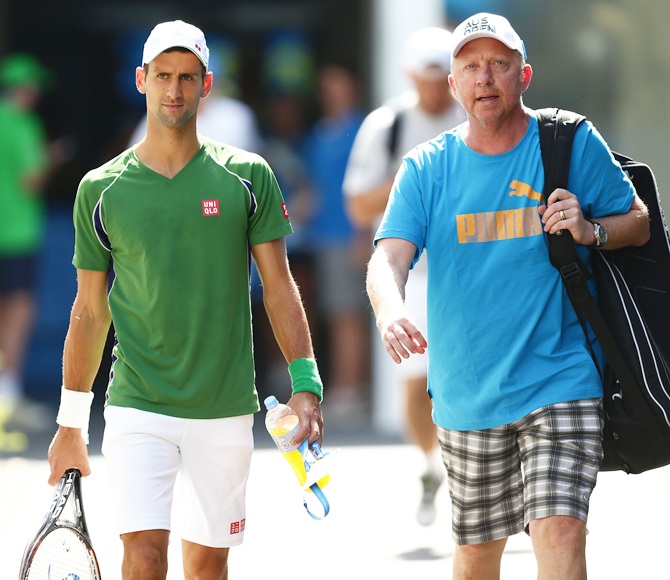
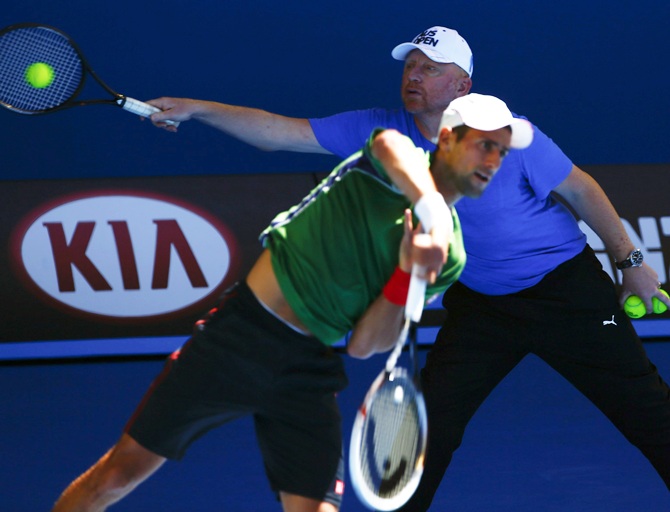
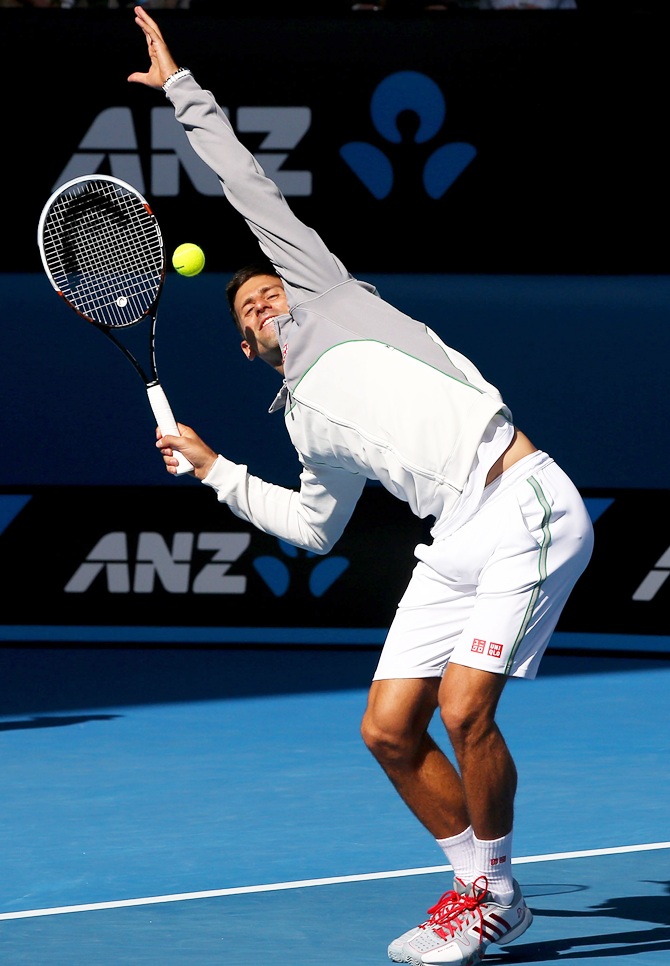
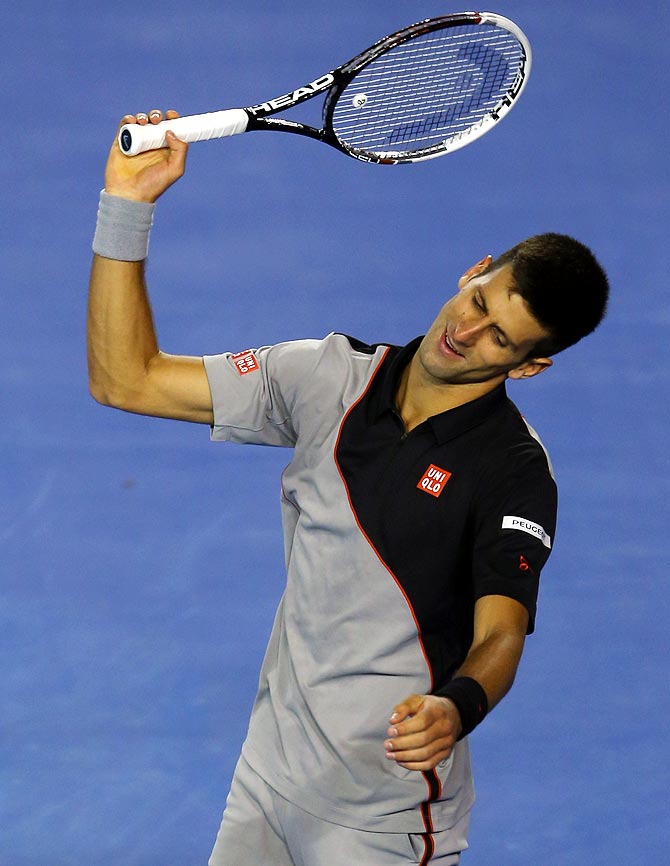
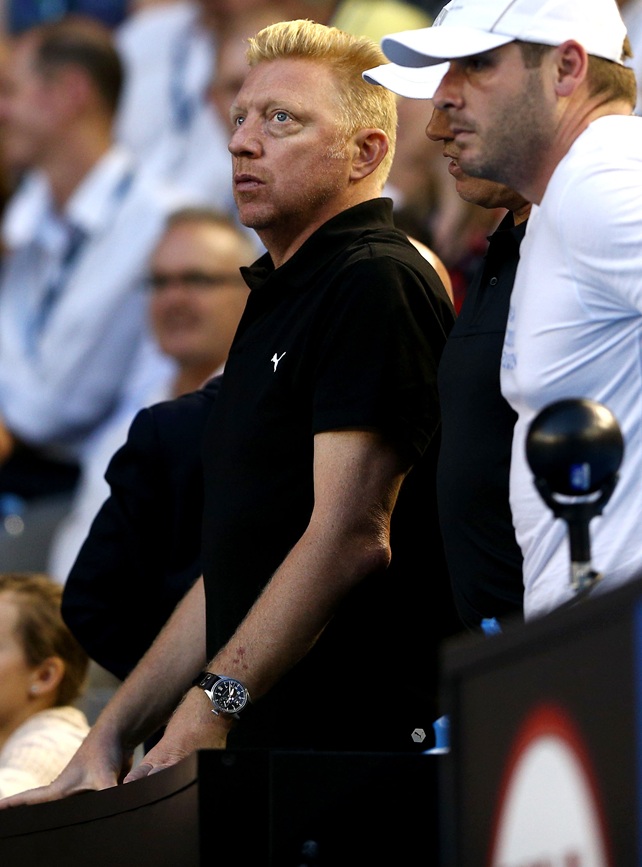
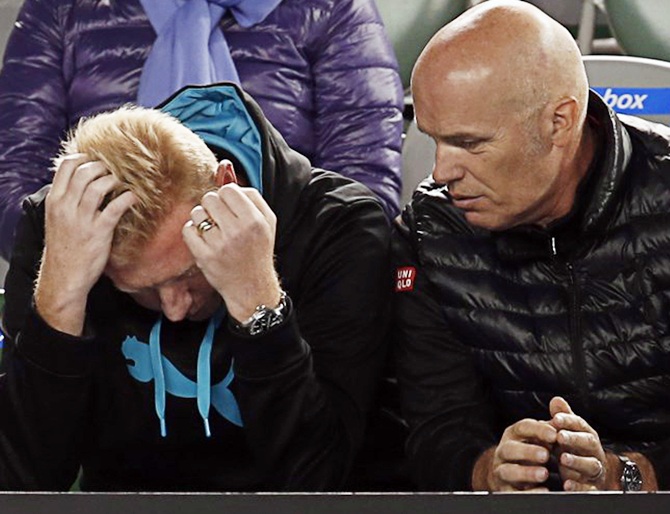
Comment
article